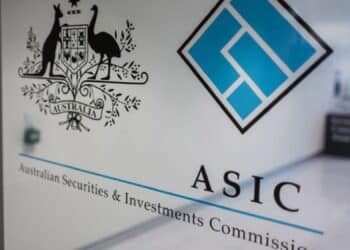September 24, 2007, was the day that super got a whole heap better.
Most people thought the ‘simpler super’ changes — eliminating Reasonable Benefit Limits and limitless tax-free retirement income — made super irresistible. But there was more — now super funds can borrow as well, making super perfect for gearing up direct property into a self-managed super fund (SMSF).
SMSF borrowing
Now with the ability to borrow, super and self-managed super in particular have become the asset ownership structure of choice in most circumstances.
This is now the single most important reason to consider an SMSF over a public offer fund, even for those clients with balances lower than the traditionally accepted threshold of $500,000, where a SMSF becomes cost competitive.
The change arises from a review by the Government of the use by SMSFs of instalment warrants. The review was triggered by the regulator’s view that the use of instalment warrants may actually breach the law, notwithstanding their popularity.
As a result, the Superannuation Industry (Supervision) Act 1993 (SISA) was amended in September to permit the use of borrowing similar to instalment warrants for any asset that an SMSF could otherwise invest in.
These new powers are embodied in section 67(4A), which enables an SMSF to borrow to fund the acquisition of an asset on the following conditions:
> recourse of the lender against the SMSF is limited to the asset itself;
> the asset is an asset the SMSF could otherwise legally acquire (if it had the funds);
> the asset is held on trust for the SMSF;
> the SMSF acquires a beneficial interest in the asset from the outset; and
> the SMSF has the right to acquire legal title on making one or more payments.
Benefit of gearing
Together, these changes enable SMSFs to harness the four key wealth creation forces:
1. the magic of compounding;
2. the power of leverage;
3. the tax benefits of negative gearing; and
4. the low or zero tax payable in the super environment.
1999 all over again
Those of us with longer memories and perhaps a bit of grey hair will recognise much of the structure just described; it is identical to a pre-1999 geared unit trust, except the loan is limited recourse and is taken out by the SMSF rather than the trust.
SMSF trustee checklist before borrowing
1. Loans
What trustees should look out for in selecting a gearing product:
> compliance and structure;
> fees; and
> choice/flexibility.
2. Choice
Are the loan and the property tied together in anyway?
Are you able to choose the property?
Can you choose your property manager (collects rent, finds tenant, manages maintenance, and so on)?
Can you choose your trustee?
Can you choose your own tenant?
3. Fees and transparency
The lifecycle costs of the loan and the property:
n are there any fees that are dependent on the current or future value of the property?
n management fees — are there any trustee management fees? Can you alter this if unhappy with service?
n Property management fees — can you use your own manager?
n Compliance costs — is your auditor going to have seen this before? Or are your costs going to go up if you have an obscure tailored structure?
n Are there exit fees for early payout?
4. Personal guarantees
Are there personal guarantees required of trustees? (Although not prohibited by section 67(4A), could they be perceived by the Australian Taxation Office (ATO) to be non-arms length and, therefore, subject to tax in your super fund at 47 per cent tax (Income Tax Assessment Act 1997 section 295), also the benefits under the guarantee could be a prohibited acquisition if given by a related party).
If you take the DIY route (using standard documents), are you lending at an appropriate arms length rate having regard to the security and non-recourse nature of the loan?
5. Completion of loan — retirement phase
When the loan is paid out, do you have to transfer the property? If so, what about stamp duty and capital gains tax (CGT)?
Is the structure designed to deal with these in all states, are you relying on the behaviour of the trustee to ensure you retain those stamp duty and CGT concessions?
Are you sure the rules will still give you an exemption in 20 years?
A traditional warrant requires the super fund to transfer the asset from the warrant trustee to the super fund when the loan is paid out.
With real estate there are significant stamp duty costs in doing this if the transfer does not qualify for the few exemptions available.
The transfer will not happen for up to 20 years, so it is impossible to be absolutely sure that the exemptions will be available.
Using a related party trustee means there is no need to do the transfer and certainly little benefit, so it doesn’t matter whether the rules change in the meantime or the exemption is not available for some other reason.
6. Regulatory
Does your investment strategy cover gearing?
Does your trust deed contemplate these types of transactions?
Do you have a risk management statement that may be required (by SIS) when considering a derivative-based product?
Is your adviser licensed to advise on derivatives? (Very few financial planners are so licensed and even fewer accountants.)
Vince Scully is the chief executive of the Calliva Group , a boutique financial services company that provides loans to super funds and structured investment products.





